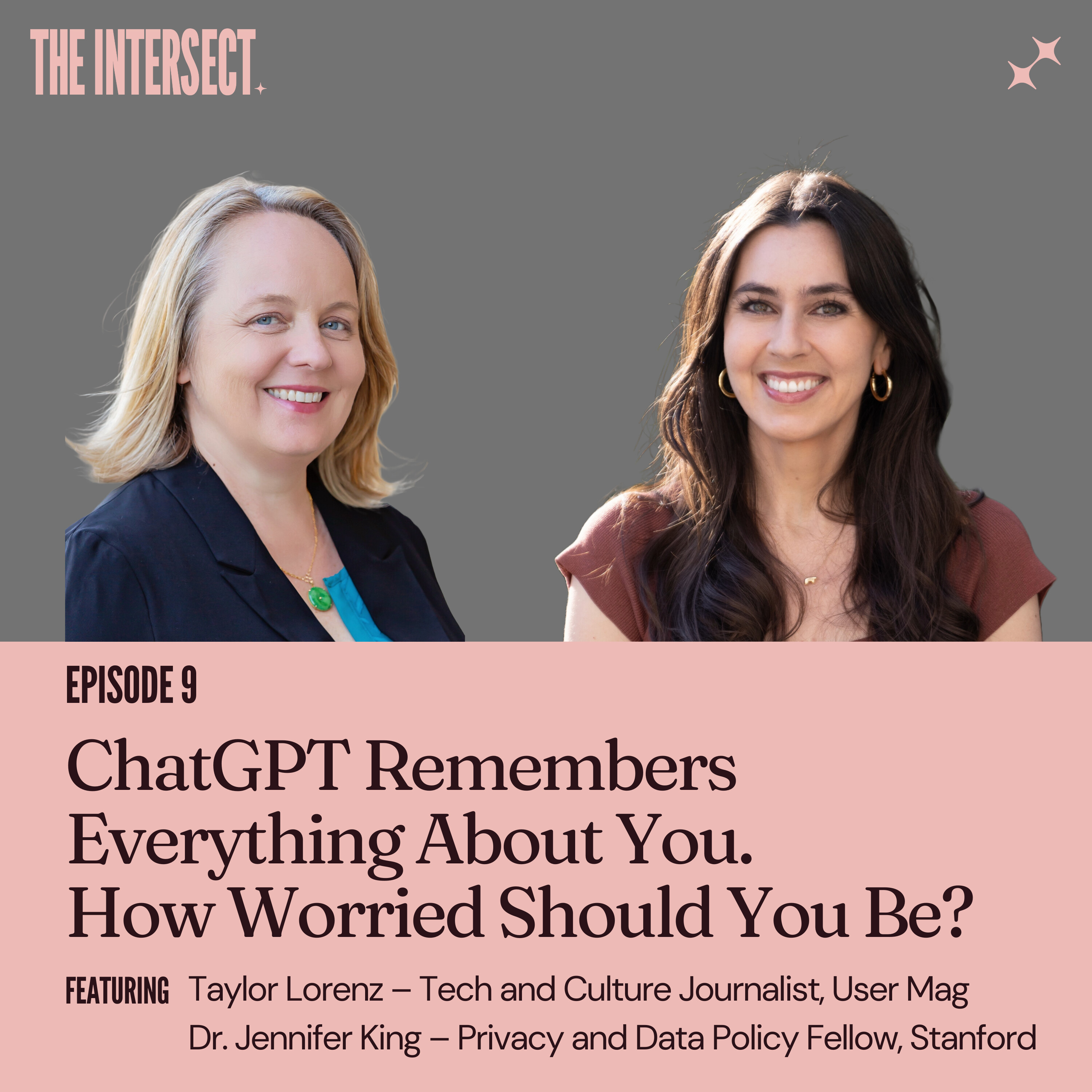Search, swipe, sleep -- everything you do is being tracked, but can you even ‘turn it off’?!

To give your data, or not to give your data? No longer the question. I don’t think we actually have a choice anymore, especially if we want to participate in the world with other people, digital and IRL.
This week’s conversation on The Intersect is about online privacy -- or maybe the slow, confusing erosion of it. I sat down with culture and tech reporter Taylor Lorenz and Stanford privacy fellow Dr. Jen King to unpack what that word -- ’privacy’ -- even means in a world of AI.
I don’t know anyone who feels totally in control of their digital life. I certainly don’t. I’m a media executive, a journalist, a mother, a woman who’s been online for decades.
I’ve used services like DeleteMe after being ‘lightly’ doxxed. I got off social media properly for a decade. I’m crawling back on my own terms now and I’ve found myself resigned to the idea that most of what I do -- search, walk, swipe, even sleep -- is mediated by data collection. And yet, I’m participating, quite heavily if I’m honest, and still asking: Where is the line? What am I giving up?
This episode started with a question: Is it okay that your AI BFF knows everything about you? By AI BFF I mean ChatGPT who is increasingly our friend, our therapist, our life partner. We are actively feeding the beast every time we start a new chat.
Journalist Taylor Lorenz on data collection and her covering of the recent protests in Los Angeles in early June, where some participants were burning Waymo cars to signify the data collection and lack of privacy for citizens in what is seemingly a growing ‘surveillance state’
From wearables to chatbots to QR codes, personal data is constantly being tracked, stored and even used to drive your bosses business decisions.
Both Jen and Taylor pointed out amidst all the data collection happening, we’re not in a ‘police state’ exactly. But we are living in a surveillance reality -- one made not just by governments, but driven largely by both private companies like OpenAI and public companies like Google and Microsoft who own the infrastructure of our everyday life.
It’s hard to know what to do. Jen offered real tools -- like turning off location tracking, not answering all the questions (IE like inputting how many sexual partners have you had into a fertility app … right, why do they need to know this?!)
Also even if tech companies boast of being transparent in their terms of service, have you ever read those? No, you haven’t. And neither have I. As Jen tells us, they are written for lawyers that most private citizens do not employ.
I’m not here to scare you off the grid. I’m still here -- still typing, still talking, still sharing. But we should think about if we NEED to … give it ALL away.
Cory
Some of what I’m reading this week:
Your AI therapist is leaking your secrets
Meta AI chats are being publicly indexed, revealing users’ private confessions about sex, politics and grief -- often without them realizing … this is truly terrifying, and not at all unexpected (see above ;)
by Gerrit De Vynck, The Washington Post
The newspaper that hired ChatGPT
Il Foglio editor Claudio Cerasa explains why the Italian newspaper treats ChatGPT like a newsroom colleague -- arguing AI is a creative partner, not a threat … co-exist, loving this. I also can’t stop thinking about how this chatbots output ends up in 29K printed newspapers; what a time to be alive
by Matteo Wong, The Atlantic
Men, Where Have You Gone? Please Come Back.
A deeply personal plea -- and a broader cultural reckoning -- about the vanishing presence of men in romantic life, in real life, off the screen … you have to see the cover art on this piece, says it all
by Alison B. Hart, The New York Times
Conspiracy theories are AI’s newest hobby
Some AI chatbots like ChatGPT are echoing conspiracy theories, raising alarms about how misinformation may scale in the era of synthetic text, while sending some spiraling … a gripping and troubling read
by Tiffany Hsu and Stuart A. Thompson, The New York Times
What does AI cost the planet?
As AI models grow more powerful, researchers call for urgent accounting of the true environmental toll of training and running these systems … you’ll likely not click this piece, no one wants to read about this; news doesn’t seem great
by Christoph Droesser, Advanced Science News
Trump is launching his own mobile network
A new trademark application reveals Donald Trump’s plans to launch ‘T1,’ a mobile service that would create a new line of Trump business around telecom … I see a fast furthering of audience fragmentation with this new era of hardware and platform development
by Makena Kelly, The Verge



